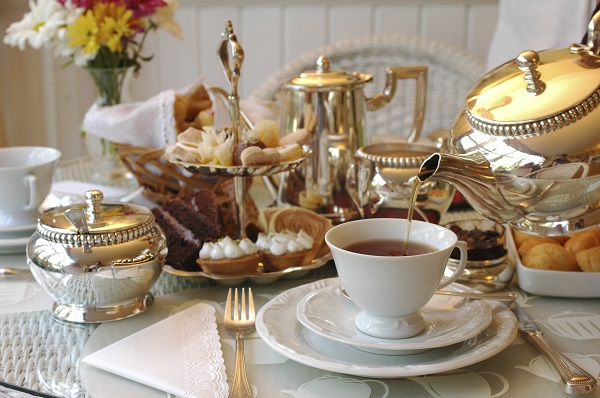Learn the names of different types of British tea, as it holds significance in daily life and culture.
Enjoying a pleasant autumn evening with a good book, wrapped in a warm blanket, and accompanied by a delightful cup of tea is a lovely experience.
What type of tea is your preference? Black, green, or perhaps the exotic Indian tea with spices?
Today, we’ll explore the English names for various types of tea and delve into six English idioms inspired by tea.
What is your English level?
Find out your A1 A2 B1 B2 C1 C2 level of English with our quick, free online test.
Basic varieties of tea in English
- Masala chai
- Herbal tea
- Post-fermented tea
- Flavored tea
- English Breakfast
- Irish Breakfast
- Earl Grey
- Darjeeling tea
- Oolong
- Green tea
- White tea
- Yellow tea
By the way, in this fantastic infographic, you can access plenty of English information about tea varieties while practicing your pronunciation. Additionally, you’ll discover helpful details on preparing various types of tea and learn about tea-drinking traditions across different cultures.
Are you C1 Advanced English?
Get your C1 Advanced English certificate now!
✓ Add your certificate to your resume
⭐ ⭐ ⭐ ⭐ ⭐
English idioms based on tea
Tea party
The expression “tea party” originally refers to a social gathering where tea is consumed. However, when used as an idiom, it conveys that something was exceptionally easy.
Example: This exam was just a tea party for me. I didn’t expect it to be so easy.
Not for all the tea in China
This implies a reluctance to undertake a particular action, regardless of the potential reward—indicating a strong unwillingness to engage in the task.
Example: I won’t do this not for all the tea in China.
My cup of tea/not my cup of tea
This is a widely used idiom in everyday English conversation, denoting an individual’s preferences.
Example: Watching horror movies is not my cup of tea.
Example: Going shopping with friends every weekend is my cup of tea. I absolutely love it!
A storm in a teacup
This idiom, originating from UK English, is employed when individuals discuss a minor event or a small problem as if it were a major tragedy.
Example: Kelly’s complaints about the wedding cake were a storm in a teacup. The wedding was generally very well organized.
Tempest in a teapot
This is the American (US English) rendition of the preceding idiom.
Example: The entire affair is just a tempest in a teapot.
It’s as good as a chocolate teapot
Picture a teapot crafted from chocolate. It would be completely impractical for serving hot tea, wouldn’t it?
Example: Your plan is as good as a chocolate teapot.






